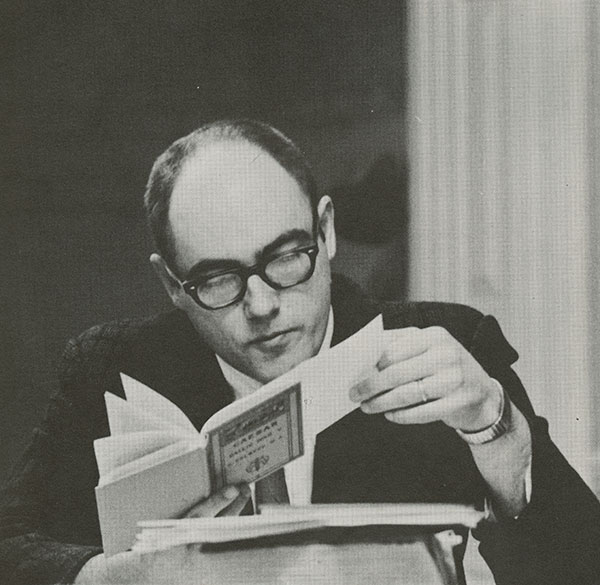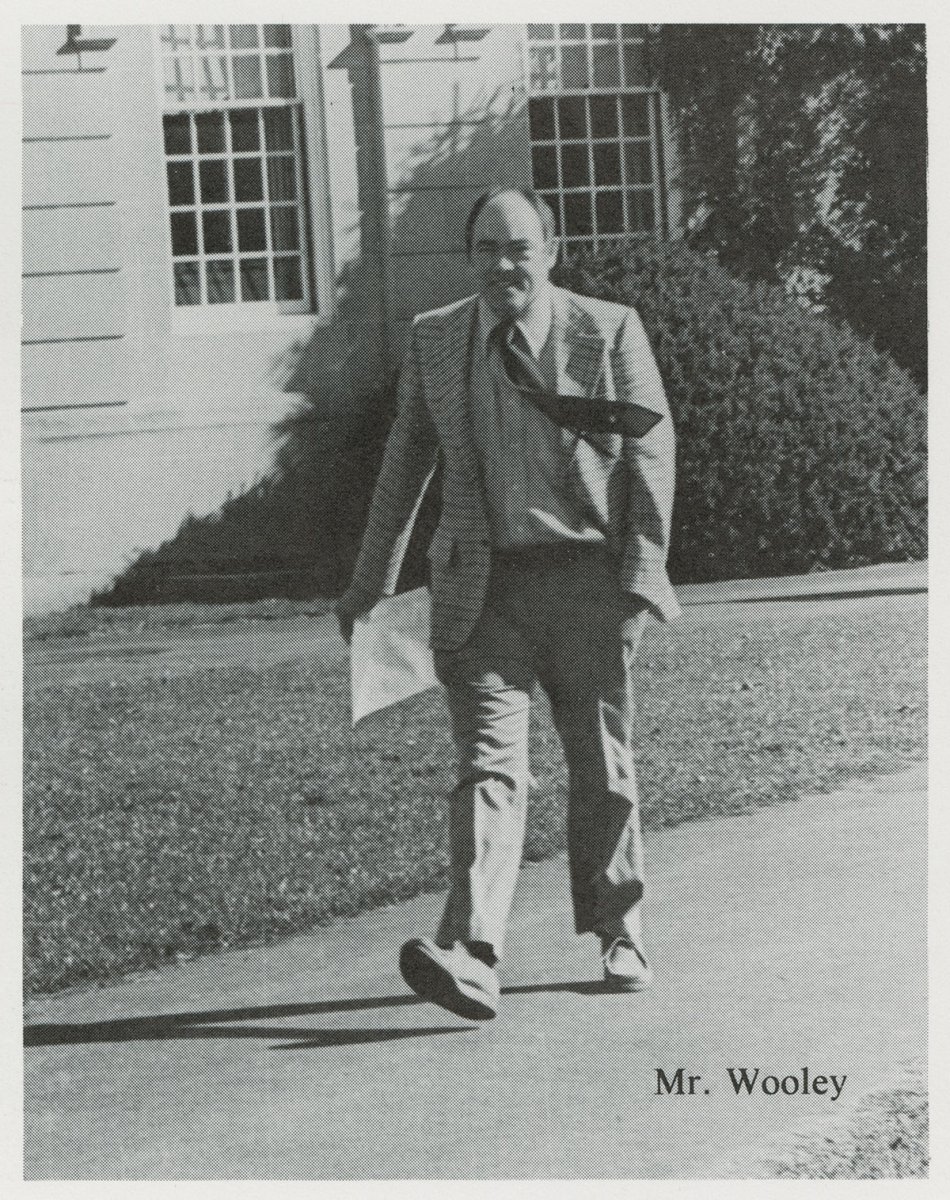Allan D. Wooley ’54; P’84
1936-2020
 Chair of the Department of Classical Languages, Instructor in Classical Languages and Bradbury Longfellow Cilley Professor of Greek, Emeritus
Chair of the Department of Classical Languages, Instructor in Classical Languages and Bradbury Longfellow Cilley Professor of Greek, Emeritus
Allan Wooley, Instructor in Classical Languages, Chair of the Department of Classical Languages (1988-1996), recipient of a Ryberg Award (1976), and Bradbury Longfellow Cilley Professor of Greek (appointed 1990), was born in Rumford, Maine and graduated from Phillips Exeter in 1954. He earned his B.A. at Bowdoin in 1958 and Ph.D. in Classical Philology from Princeton in 1962. After teaching at Duke University and Gould Academy, he joined Exeter’s Department of Classical Languages in 1968.
In his life as an instructor at a residential school, Allan applied an almost superhuman energy, diligence, and critical thinking to every duty or project. In addition to coaching and sitting on a variety of committees, he lived, along with his first wife Anne and their daughter Helena, in Wheelwright Hall, in Merrill Hall as dormitory head, and for twelve years as head in Ewald. Allan considered the role of faculty in residential life a vital support to both academic achievement and personal and ethical growth. While uncompromising in his high expectations for student behavior, he nevertheless thought seriously about the adequacy of the Academy’s rules and traditions governing that behavior. For instance, in his early years, an era when a faculty member’s directions to students held almost unquestioned authority, an instructor ordered one of Allan’s advisees to cut his long hair. After much consideration, Allan concluded that students did after all have some rights and stood up for the boy. In all discussions of school business, Allan expressed himself forthrightly and incisively. He strongly opposed bureaucratic intrusions on the connection between adviser and student and both to the entire faculty in its meetings and to the administration in numerous memos, urged his colleagues to consider systematically the root principles and philosophies of the school’s procedures and policies. 
As a classroom instructor, the seriousness and rigor Allan brought to the teaching of ancient Latin and Greek won him universal respect, and many found the exceptional challenges he posed inspiring. Although he could be tough and gruff in dealing with students, his genuine concern for their learning and their general well-being was apparent. His sharp wit and almost mischievous pleasure in class could often shine through. He was known to remark upon a student’s inadequate effort to compose a sentence in Greek, “You could say that, but it wouldn’t be Greek.” While he sought to preserve his discipline’s traditional emphasis on language and on reading Greek and Latin texts, Allan was a forward-thinking, innovative teacher. Deep investigations of language and the brain, for example, produced new approaches to assisting those learning the basics of the languages. He created elective courses that attracted more than one generation of students, and he co-authored or co-edited several books, both for publication and for the department’s own Latin courses. He was instrumental in examining and revising his department’s curriculum and, late in his career (2002-2003), he took the opportunity to teach at SYA in Viterbo, Italy.
In the 1970s, Allan discovered in computer programming yet another rich field for his relentless curiosity and creativity. He became a leader in academic computing at the Academy, serving as computer coordinator in 1984-85, teaching computer programming, and developing educational software for a variety of emerging platforms. His advocacy of computer technology freed his department from typewriters and created a departmental webpage well ahead of these developments at the Academy. He masterfully combined his talents as classicist and programmer in his courses, but perhaps nowhere more so than in Greek Views of Life, a course on Greek philosophy that was cross-listed in Religion and the only humanities course at the time that experimented fully with computer-assisted instruction.
Allan’s study of Greek philosophy seemed to lie at the core of his identity, and he remained a serious scholar of Plato throughout his life. On the lighter side, some have even remarked that he could resemble Socrates in one of his characteristic looks, for he would often, as Plato writes, “glance up...with lowered head like a bull.” More important, however, Allan was a master of critical inquiry and analysis, and many a student and adult under his sharp-eyed scrutiny felt puzzled and even exasperated by his questions. As was true for Socrates, however, his goal always was to prompt others to reconsider the basis of their values. He himself, though a true conservative who abided firmly by his principles, maintained a mind remarkably open to self- scrutiny and thoughtful discussion.
Allan retired from full-time teaching in 2004 and passed away on August 22, 2020, his wife Ilene at his side, at their home in Morgan, Vermont. Up to the final weeks of his life, Allan’s intellectual vigor remained unabated, especially as a scholar of Greek philosophy and a computer programmer. Amid his many pursuits, he always nurtured a vital concern for his former department, former students, and the Academy. For all Exeter gave him in his time as a student and as an instructor in the way of learning, inspiration, and field of play for such a fine intellect, Allan Wooley returned those gifts in more than due measure to his students, colleagues, and school.

Respectfully submitted,
Andrew Hertig
Patricia Hindman
Paul Langford
Harvey Lederman
Nicholas Unger
Editor's note: This is a full, unedited version of this Memorial Minute.
